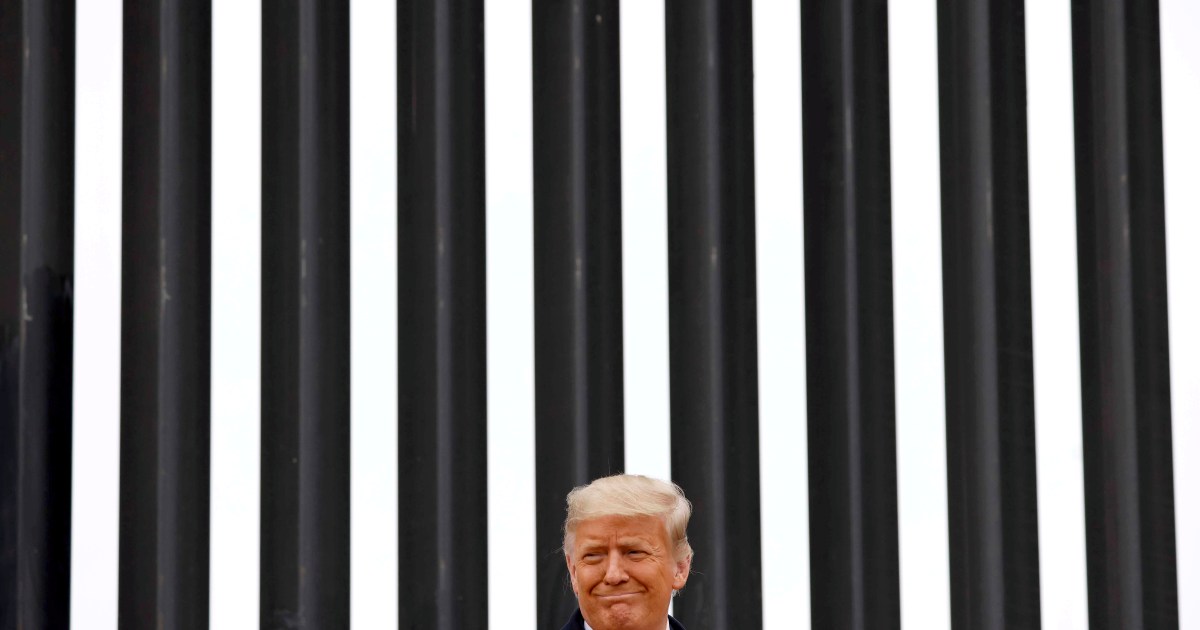On Tuesday, the US Senate began the second trial of former President Donald Trump on charges of "inciting" his supporters to attack the Capitol building on January 6.
The landmark trial of the former Republican president began with a minute of silence, followed by the start of voting on a resolution detailing the framework of the discussions.
The House of Representatives charged Trump last month over his role in the congressional storming by a crowd of his supporters.
In the first trial of its kind against a former president, the 100 members of the Senate will serve the jury.
Today, Tuesday, at the start of the trial, Democratic Prosecutor Jimmy Ruskin said that the indictment against the former president was based on "concrete and solid facts."
Ruskin, a former law professor, promised to avoid giving boring "long lessons" and showed a video of a few minutes containing excerpts from the fiery statements Trump made to his supporters who demonstrated in Washington on January 6, and scenes of violence during their subsequent storming. Capitol building.
For his part, Chairman of the House Intelligence Committee Adam Schiff said, "Trump is responsible for the most dangerous attack on our democracy in American history."
Trump's defense team denounced
In the same context, Trump's legal team condemned the trial on Monday, saying it was a violation of the constitution, and that it was "absurd" to hold the former president responsible for the violence.
But Democratic lawmakers who take charge of the prosecution mission considered that the former president committed "the most serious violation of the constitution" in the presidential history of 232 years, by inciting his supporters to storm Congress.
The trial is being held while most parts of the Capitol are still closed and subject to tight security measures a month after the unrest.
And amid continuing fears of attacks by extremists, there are still 6,000 members of the National Guard deployed in Washington.
The litigation begins tomorrow, Wednesday, in which each side receives 16 hours, distributed over two days.
Then members of the Senate ask questions to both sides, and in the event that any party wants to summon witnesses, the matter is put to a vote with the necessity to obtain a majority of votes, knowing that Trump rejected a request sent to him by Democratic prosecutors to hear his testimony under oath.
Political damage
Trump has been hit hard politically, partly as he sticks to allegations of election fraud, but he still wields weight in the Republican Party.
After being charged with "incitement to revolt," he is likely to avoid conviction, given the loyalty he enjoys in the Senate, but his attorneys stated in their documents, which were delivered on the eve of the trial, that the constitution does not grant the House of Representatives the power to try a former president.
Attorneys David Schon, Bruce Castor and Michael T. van der Vein wrote that "the Senate must swiftly reject this shameless political act" because "it is clear that this is not what the framers wanted nor what the constitution allows."
They added that "responding to the thirst of democrats in the House of Representatives for this political play is a threat to democracy and the rights that we cherish."
The lawyers used a sharp tone in the 78-page argument, and said it was "absurd" to say that Trump had incited a crowd to commit a violent crime, and considered that those who attacked the Capitol did so on their own accord.
On Monday, President Joe Biden, who succeeded Trump on January 20, refused to address the question of whether Trump should be indicted or barred from holding any public office in the future.
Later, White House spokeswoman Gene Saki told reporters that Biden was running against Trump in 2020 "because he felt that he (Trump) was not qualified for the position," but added that the president "will leave it to the Senate to consider the course of this trial."
If Trump is convicted of the charge (conviction requires a two-thirds majority), the Senate will then hold a simple majority vote to prevent him from holding any public office in the future.

